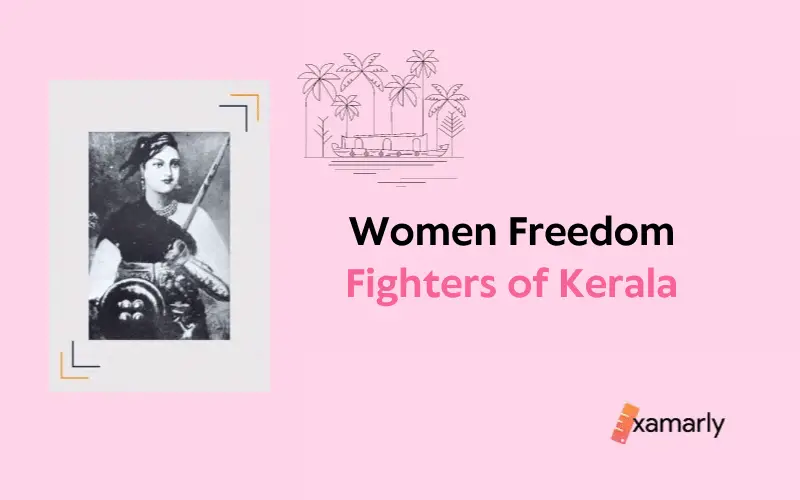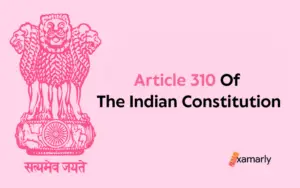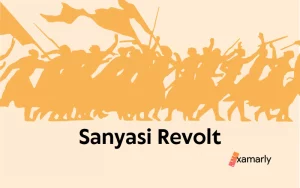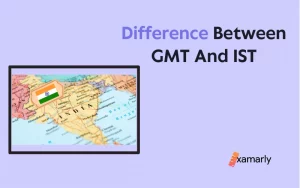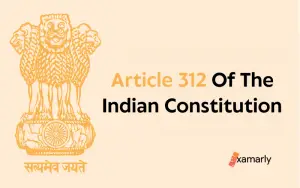Indian political and cultural history is replete with tales of victory and sacrifice showcased during the Indian independence movement.
The struggle for freedom was strengthened by the immense contributions of countless Indian freedom fighters who laid their lives for the betterment of future generations.
Historical narratives and public memory record the active roles played by many male Indian freedom fighters.
This might lead to the misconception that the movement did not have many women volunteers.
In reality, Indian women stepped up when the country and the citizens needed them. They answered Mahatma Gandhi’s call to unite against the British authorities and became the biggest contribution to the movement.
Like each region that has its own specific tales, Kerala has its own stories of the freedom struggle. Kerala has produced many freedom fighters, both men and women, who showed active participation in regional social reforms and national movements.
While we may know of the men, the Malayali women who took the freedom struggle forward remain forgotten in public memory. It is high time to set this right.
To know more about the well-known Indian Independence activists, read this article on women freedom fighters in Kerala.
They led complex lives bearing social and political responsibilities and yet manage to have an active life in the freedom struggle.
As citizens enjoying the democratic freedom of independent India, it is upon us to learn more about them and instil this faith in women to future generations.
Further, people preparing for competitive exams like UPSC may benefit from this article.
- Women Freedom Fighters Of Kerala
- Lakshmi N Menon
- Akkamma Cheriyan
- Rosamma Ponnoose
- AV Kuttimalu Amma
- Annie Mascarene
- V Parukkutti Amma
- Muthukulam Parvathy Amma
- Elamkuttil Narayanikutty Amma
- Anakkara Vadakkath G Susheela, Last Surviving Freedom Fighter
- Conclusion
- Some Important FAQs
- Who were some of the famous female freedom fighters of Kerala?
- What role did Akkamma Cherian play in the Indian independence movement?
- Who was A. Lakshmi Bai and what was her contribution to the freedom movement in Kerala?
- What was K.K. Saramma's role in the Indian independence movement?
- What was K.S. Sethulakshmi's contribution to the Indian independence movement in Kerala?
Women Freedom Fighters Of Kerala
There are many women freedom fighters in Kerala who fought for the Independence of India. Some of these women freedom fighters in Kerala are described below.
Lakshmi N Menon
Lakshmi N Memon was an Indian freedom fighter, politician, and social reformer. She was also the Minister of the State of Kerala from 1962 to 1966.
Hailing from Trivandrum, her parents were Rama Varma Thampan and Madhavikutty Amma. She married V K Nandan Menon who would go on to become the vice-chancellor of Travancore University and the director of the Indian Institute of Public Administration.
While undertaking formal education in England, Lakshmi N Menon travelled to Moscow as part of a student group to celebrate the Soviet Union’s tenth anniversary.
She met Pandit Jawaharlal Nehru there, and the encounter motivated her to pursue politics. In the struggle for independence, Lakshmi N Menon was one of the leaders.
She was elected to the Rajya Sabha five times and served in the Ministry of External Affairs as Deputy Manager from 1957 to 1962.
When China invaded India in 1962, a roving ambassador named Lakshmi N. Menon was elected to the Rajya Sabha.
Lakshmi N Menon became the first woman to lead an Indian delegation to the United Nations and represented India in various UN forums.
She was appointed the country’s representative to the UN Human Rights Commission in 1978. She was a brilliant mind with experience and soon became an advocate of social activism and temperance.
She visited remote villages to create awareness and was known for singing the National Anthem.
In addition to suffocating alcohol and drug users, Menon also advocated for women’s rights and equality.
Influenced by Gandhian ideas and Khadi clothing, Menon wanted to empower women and bring equality to gender roles.
She advocated education for women and believed that education was the best way to emancipate women.
Akkamma Cheriyan
Akkamma Cheriyan or Accamma Cheriyan, who hailed from Travancore, was widely recognized as the Jhansi Rani of Travancore.
She was a well-known freedom fighter from Kerala. Akkamma Cheriyan was born in Kanjirapally, Travancore, to Christain parents Thomman Cherian and Annamma Karippaparambil.
She went to Government Girls High School in Kanjirapally and St. Joseph’s High School in Changanacherry for her education.
She graduated from St. Teresa’s College in Ernakulam with a BA in History. After finishing her studies in 1931, she began working as a teacher at St. Mary’s English Medium School in Edakkara, where she subsequently rose to the position of headmistress.
The Travancore State Congress was founded in February 1938 and after hearing this Akkamma Cheriyan left her teaching job to join the fight for liberation.
Sometime in the same year, the State Congress was banned for organizing a civil disobedience movement.
Akkamma Cherian led a huge procession from Thampanoor to Maharaja Chithira Thirunal Balarama Varma’s Kowdiar Palace to demand that the State Congress ban be lifted.
The British police chief directed his officers to open fire on the crowd of nearly 20,000 people. “I am the leader; shoot me first before you kill others,” Accamma Cherian shouted. Her words made the police retract.
This incident inspired Gandhi to refer to her as “The Jhansi Rani of Travancore”. In 1939, she was arrested and convicted of breaking prohibitory orders.
Despite the ban orders, the State Congress convened its inaugural annual meeting on the 22nd and 23rd of December 1932 at Vattiyoorkavu.
Almost all State Congress leaders were arrested and imprisoned. Akkamma and her sister Rosamma Punnose were captured and imprisoned.
They were sentenced to one year in jail where she faced verbal abuse from jail authorities. Upon her release from jail, Akkamma became an active member of the State Congress, eventually serving as Acting President.
She was a strong supporter of the Quit India resolution, which was adopted in 1942. She hailed the Quit India Resolution voted at the historic Bombay session of the Indian National Congress on August 8, 1942, in her presidential address. She was arrested and sentenced to one year in jail.
After Independence, Akkamma Cheriyan was elected as a representative in the Travancore Legislative Assembly.
In 1951, Akkamma married freedom fighter V.V. Varkey, who was also a member of the Travancore Cochin Legislative Assembly.
They had a son, George V. Varkey, who is an engineer. During the early 1950s, Accamma left the Congress Party and unsuccessfully contested the Muvattupuzha Lok Sabha constituency.
In 1967, she contested her own Assembly seat in Travancore and was elected as an independent candidate.
During the 1970s, she retired from active politics and served her public life on the Freedom Fighters Pension Advisory Board.
Akkamma passed away on May 5, 1982. In her honour, a statue was constructed in Vellayambalam, Thiruvananthapuram.
Sreebala K. Menon created a documentary film about her life. Despite her imprisonment, Akkamma Cheriyan continued to fight for social justice.
An autobiography written by Akkamma titled Jeevitham: Oru Samaram. This autobiography is an inspiring read that sheds light on the struggles of her life as well as the Indian independence movement.
Note: To know more about the freedom fighters of India from the different States of India, click from the table given below and visit the linked page.
| 1. Female Freedom Fighters Of Tamilnadu |
| 2. Female Freedom Fighters Of Punjab |
| 3. Female Freedom Fighters Of Uttarakhand |
| 4. Women Freedom Fighters Of Odisha |
Rosamma Ponnoose
Rosamma Punnoose was a lawyer, politician, and Indian independence political activist hailing from Travancore. She was the first member of the Kerala Legislative Assembly to be sworn in.
She was also the first MLA in India to forfeit her seat due to the order of a court, and the first to be elected in the assembly’s first-ever by-election in 1958.
She is the sister of Akkamma Cheriyan and was the fourth child of a couple from Travancore, Thomman Cherian, and Annamma Karippaparambil. After formal education, she pursued legal education and received her degree in law from Madras Law College.
Under the strong influence of her elder sister, Rosamma entered politics by joining the Travancore State Congress in 1938.
Many subsequent events (refer to Akkamma Cheriyan) led to her imprisonment along with her sister, a jail term that later for around 3 years.
In 1946, Rossamma married P.T. Punnoose, a Communist Party of India (CPI) leader against opposition from her family and society.
The grounds for these oppositions were religious (Punnoose was a Syrian Marthoma and in those days Catholic and Marthoma communities did not wed amongst themselves) as well as political.
The two got married at a church in Cochin with a special letter of authorization from the Pope, as was the case with all Christian marriages between communist couples.
Rosamma became a member of the CPI in 1948. She was elected to the Kerala Assembly from the Devikulam constituency in the state’s first assembly election in 1957.
Her husband was elected to the Lok Sabha in the 1952 general election and kept his position in the 1957 general election, a rare occurrence in Kerala politics of an elected husband and wife.
She was also the president of Kerala Mahila Sangham, the chairwoman of the Plantation Corporation, the head of the Housing Board, and a member of the Rubber Board.
She served as the chairwoman of the Kerala Women’s Commission from 1993 till her retirement in 1998. She breathed her last on 28 December 2013.
AV Kuttimalu Amma
Anakkara Vadakkathu or A.V. Kuttimalu Amma was an Indian politician, social worker, and independence fighter. She was a key figure in the civil disobedience campaign.
She was born in Palakkad to the couple Perumbilavil Govinda Menon and Madhaviyamma of the Anakkara Vadakkathu family from Thrithala. Ammu Swaminathan and Lakshmi Sahgal were also members of the Vadakkath family.
Kuttimalu Amma was the wife of late Congress Party leader K. Madhava Menon and was a pioneer of the freedom movement in Kerala.
When Madan Mohan Malviya and Vallabhbhai Patel were detained in 1930, it was agreed to commemorate 15 August as All India Political Sufferers’ Day.
Under Kuttimalu’s direction, the Mahila Sangh visited the town to spread this. This was the first time that women in Malabar actively participated in the struggle for freedom.
She organized female protestors to picket stores in Calicut that sold imported clothing. She inspired other women to stop wearing foreign clothing and wear khadi.
On 25 April 1931, she organized a protest in Thrissur town with Margaret Pavamani and a group of ladies from middle-class households.
In 1932, she was imprisoned with her two-month-old infant as a part of the civil disobedience campaign. She was only a young mother when she was imprisoned.
After her release, she took on a role in organizing people to participate in Gandhi’s Salt satyagraha and was jailed for a year in 1940.
She received another two-year prison term in 1942 for her involvement in the Quit India Movement.
After being freed in 1944, she volunteered to take part in the Delhi Chalo strike, which compelled the British government to imprison the satyagrahis once more.
AV Kuttimalu Amma was a prominent freedom fighter in Kerala. She has been a member of the All India Congress Committee and the Congress Working Committee.
She was also a member of various organizations and served as a director of the Mathrubhumi orphanage for many years.
She was a member of the National Women’s Society and was a member of the All India Congress Committee.
Kuttimalu was also a social worker. She cared for orphans and the needy, and she also established a Juvenile Home for the rehabilitation of juvenile delinquents.
She never left public life and remained to serve the country after independence until her death in 1985.
In appreciation of her groundbreaking work, she received the Mallur Govindapillai-Veluthambi Dalava Award at the national and state levels, and she was affectionately known as “Amma” by many.
Annie Mascarene
The name of this woman evokes images of independence, feminism, and political activism, and it is fitting that we dedicate this article to this icon.
Annie Mascarene was an Indian freedom activist, politician, and lawyer from Kerala, who was the first woman to serve as a Member of Parliament.
Born in Trivandrum to a Latin-Catholic family, Annie Mascarene studied economics and history, earning a double M.A. before moving to Sri Lanka.
Later, she returned to India and earned a law degree from Trivandrum Maharaja’s College for Arts and Law.
Mascarene, along with Akkamma Cherian and Pattom Thanu Pillai, was a pioneer in the efforts for independence and the merger of the Princely States into the Indian country.
When the Travancore State Congress was constituted in February 1938, she was one of the first women to join.
Mascarene was one of 15 women elected to the Indian Constituent Assembly in 1946, which was entrusted with creating the country’s constitution. She was a member of the Assembly’s special committee that investigated the Hindu Code Bill.
When the British Parliament enacted the Indian Independence Act of 1947, the Constitutional Assembly became the Dominion of India’s parliament on August 15, 1947.
She was re-elected to the Travancore-Cochin Legislative Assembly in 1948 and stayed there till 1952.
When she was appointed as Minister in Charge of Health and Power in the Parur T K Narayana Pillai Ministry in 1949, she became the state’s first woman minister after independence.
She breathed her last in 1963. A bronze statue was unveiled in 2013 in Thiruvananthapuram, Kerala, in honour of the late freedom fighter. The statue honours the memory of this remarkable woman.
V Parukkutti Amma
In a century-old house in Kozhikode, V Parukkutti Amma lived. A freedom fighter and journalist, she had a unique place in Kerala’s political scene.
One of Kerala’s first female journalists and freedom fighters is V Parukkutti Amma. Return of the Red Rose, her translation of Indira Gandhi’s biography, is still available for purchase from bookstalls.
After finishing her education, she began working as a teacher, a position she eventually left after becoming active in the movement for freedom.
Muthukulam Parvathy Amma
Muthukulam Parvathy Amma was a Malayalam poet, teacher, translator, independence fighter, and social reformer.
She has written and published works in several genres, including poetry, short poems, plays, short tales, children’s literature, translations, and biographies.
Parvathy Amma, a Narayana Guru devotee, supported the Indian liberation fight and was affiliated with the Indian National Congress.
She was born on January 26, 1904, at Thattakkattusseri home in Muthukulam, Alappuzha district, to P. Rama Panicker and Velumbiamma.
She began her profession as a teacher after graduating from the University of Madras.
Parvathy Amma, a disciple of Narayana Guru, desired to form a sangha (community) of female disciples of the Guru.
Parvati Amma was a supporter of the Indian liberation fight and a member of the Indian National Congress.
In the 1960 general elections, she campaigned for the Congress Party and spoke at numerous events around Kerala.
Her drama Save India, composed for the election campaign, was played throughout Kerala. She also participated in the Vaikom Satyagraha campaigns.
Parvati Amma was a supporter of the Indian liberation fight and a member of the Indian National Congress.
In the 1960 general elections, she campaigned for the Congress Party and spoke at numerous events around Kerala.
Her drama Save India, composed for the election campaign, was played throughout Kerala. She also participated in the Vaikom Satyagraha campaigns.
She was an excellent publicist of Gandhian principles, actively participating in writing and preaching social ideals.
She has written and published works in a variety of genres, including poetry, short poems, plays, short tales, translations, and biographies.
Parvati Amma completed the poet Kumaran Asan’s unfinished work Sreebudha Charitha. The Muthukulam Parvathy Amma Award is presented to female writers.
Elamkuttil Narayanikutty Amma
Elamkuttil Narayanikutty Amma was born in Kozhikode, Kerala. Edavalli Narayanan Nair, her father, was a lawyer.
She became a teacher at Kozhikode after graduating from Queen Mary’s College in Madras. She rose to prominence as a bright teacher and was heavily involved in the establishment of a ‘Baby Centre’ in Kozhikode, which provided health care to impoverished children.
She also participated in the All-India Women’s Conference, alongside T. M. Narayanikutty Kovilamma and G. Kamalamma.
Later, as a propagator of Khadar and Hindi, she rose to prominence in the national cause, closely affiliated with well-known nationalists such as A.V.Kuttimalu Amma and Verkot Ammakutty Amma.
She was also interested in theatre and appeared in a theatrical performance of O. Chandu Menon’s groundbreaking novel, Indulekha (1889).
She was recognized as a great organizer, and she received most of the credit for the ‘Swadeshi Exhibitions’ held in Kozhikode in the 1930s. She retired from public life after independence.
Anakkara Vadakkath G Susheela, Last Surviving Freedom Fighter
G Susheela was one of the last surviving female freedom fighters from Kerala. She hailed from the famous Vadakkath House that brought many eminent activists, leaders, and artists to India.
Susheelamma was related to Captain Lakshmi Sahgal, a revolutionary independence fighter, and Mrinalini Sarabhai, a renowned dancer.
She was convicted to two months in prison in February 1943 for participating in a student rally in front of the Presidency Magistrate Court in Egmore, Chennai.
She was detained at the Vellore women’s prison. After being freed from prison, she began a spinning wheel program for women in Anakkara as part of her khadi activity.
She hoped to establish a women’s group to empower women. She had used her freedom fighter’s pension to help the less fortunate members of society. For a long period, she was the secretary at Chinmaya School in Kalladathur.
Her spouse, TV Kunjikrishnan, was a freedom fighter as well. She breathed her last on 22 September 2021.
Conclusion
The duty of any responsible government is to acknowledge and celebrate the biggest contribution by those who laid the foundational stones of the country or state with their selfless efforts.
At a time when there were not many choices before women, at a time when married life was the norm, many women stood apart and entered the nationalist movement in whatever capacity possible.
Many women freedom fighters of Kerala rekindled the faith in women by playing a crucial role in making British India an Independent India.
These Indian independence activists initiated political and social reforms from the grassroots level. These names should not just be etched in our minds, they should be forever written in the historical narratives of our land.
The lives of women should be respected, celebrated, and remembered for future generations to understand the value of democratic freedom.
Some Important FAQs
Who were some of the famous female freedom fighters of Kerala?
Some of the famous female freedom fighters of Kerala include: Akkamma Cherian, A. Lakshmi Bai, K.K. Saramma, and K.S. Sethulakshmi.
What role did Akkamma Cherian play in the Indian independence movement?
Akkamma Cherian was a prominent leader of the Indian independence movement in Kerala. She was involved in various anti-colonial activities and was arrested multiple times for her participation in the freedom struggle.
Who was A. Lakshmi Bai and what was her contribution to the freedom movement in Kerala?
A. Lakshmi Bai was a freedom fighter and social worker from Kerala who played a major role in the Indian independence movement. She was involved in various anti-colonial activities and was also a member of the All India Congress Committee.
What was K.K. Saramma’s role in the Indian independence movement?
K.K. Saramma was a prominent leader of the Indian independence movement in Kerala. She was known for her participation in various anti-colonial activities, including the Salt Satyagraha, and was arrested multiple times for her involvement in the freedom struggle.
What was K.S. Sethulakshmi’s contribution to the Indian independence movement in Kerala?
K.S. Sethulakshmi was a prominent leader of the Indian independence movement in Kerala. She was involved in various anti-colonial activities and was also a member of the All India Congress Committee. She was also one of the founding members of the Women’s Indian Association in Kerala.


